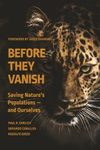"Why do we think about elephants the way we do? Nigel Rothfels burrows deep into this question, exploring elephants both real and imagined across a sweep of places and narratives, from stately museums and wild thickets to lurid circuses. In the process, Rothfels becomes part of the story as he puzzles over the meaning and mystery of one of nature's most sublime and misunderstood species. The result is that rarest of beasts in the scholarship on animals and society: a page turner."
– Ben A. Minteer, Arizona State University, author of The Fall of the Wild: Extinction, De-Extinction, and the Ethics of Conservation
"This is a beautiful book, lucid, elegant, and poignant. It is as wise and gentle and enduring as (our fantasies impose on) elephants. Like the blind men in the Buddhist fable that opens the book, we feel Rothfels's unknowable elephantine subject from various directions and – in so doing – the subject becomes unfamiliar and we learn to understand it (and ourselves) afresh. A monumental work."
– Sandra Swart, Stellenbosch University, author of Riding High: Horses, Humans and History in South Africa
"An extraordinary book. Rothfels draws upon archival work, field research, and deep personal reflections to explore the human encounter with elephants. The results are convincing, artful, and often breathtaking. Simply put, this is a deeply researched, vividly written book by a master historian at the height of his craft."
– Jason Colby, University of Victoria, author of Orca: How We Came to Know and Love the Ocean's Greatest Predator
"Nigel Rothfels's brilliantly written and empathic account of the largest living land mammal shows how the enlivening presence of elephants helped humans to make sense of the world around them. It also illuminates how animal historians benefit from adapting unconventional methods that engage with tusks, bones, and skins while daring to track the animals in the archives of both nature and history."
– Mieke Roscher, University of Kassel, coeditor of Animal Biography: Re-framing Animal Lives
"Well-researched from wide-ranging resources, Rothfels covers a rich history of encounters between humans and elephant from a realistic yet thoughtful perspective. Topics range from memorable elephants in zoos and circuses to humans from Hannibal to Theodore Roosevelt. Possibly hundreds of elephant books occupy wildlife fans' bookshelves, yet Rothfels's fascinating account will leave a lasting impression in the mind of seasoned elephant enthusiasts."
– Ken Kawata, Director Emeritus, Staten Island Zoo, author of New York's Biggst Little Zoo: A History of the Staten Island Zoo
"What makes this gracefully-written book so moving is the author's careful, quiet portraits of individual elephants. Famous and not-so-famous circus and zoo elephants with names like Toto, Josephine, Lily, Gunda, and Tusko, 'The Mightiest of Living Creatures,' emerge as singularities with biographies, distinctive personalities, and often troubled lives. Enchanting and disquieting, in equal measure."
– Don Kulick, Uppsala University, author of A Death in the Rainforest: How a Language and a Way of Life Came to an End in Papua New Guinea
"Elephant Trails is a major contribution to the understanding of animals and cultures from a figure of real authority in the field of animal studies. With care and great clarity, Nigel Rothfels highlights the need for more modesty in the claims that humans continue to make about elephants."
– Steve Baker, author of ArtistAnimal and The Postmodern Animal



































